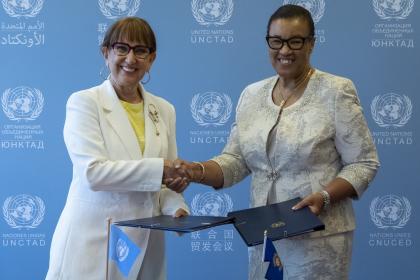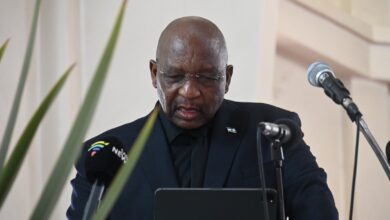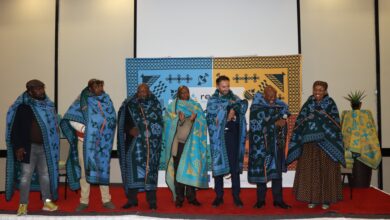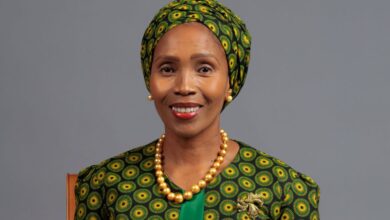Lesotho Convenes UNCTAD15 Side Panel Event On Bridging The Divide Between Formal & Informal Cross-Border Traders

7 October Maseru, Lesotho– The 15th session of the UNCTAD quadrennial ministerial conference (UNCTAD15) has been held virtually between Barbados and Geneva from 3 to 7 October 2021.
The UNCTAD 15 conference will establish the organisation’s work priorities for the next four years and formulate global policy recommendations. It presents an opportunity for developed and developing countries to jointly take bold actions to reduce inequality and vulnerability and offer hope and direction to a world struggling to recover from the COVID-19 pandemic.
UNCTAD15 will be held under the theme “From inequality and vulnerability to prosperity for all”, offering the nations of the world a platform to devise new ways to use trade as an enabler of sustainable development.
With economies all over the world ravaged by COVID-19, countries will explore how to build back better and strengthen their resilience. They will discuss the strategies and policies needed to resist shocks and quickly recover from crises – economic, financial, climate and social.
To supplement the global conference, the UN in Lesotho today hosted host a side panel event specific to Lesotho under the theme “Bridging the divide between formal and informal cross-border traders”.
The UN Resident Coordinator and UNDP Representative, Betty Wahunoha remarked at the opening session “HOLD FOR QUOTE”
Lesotho depends heavily on trade with South Africa, which was intermittently disrupted due to border closures during the COVID-19 pandemic. Whilst both formal and informal traders have been affected, formal, mainly medium-sized, traders have generally been able to navigate border closures and to maintain their trade routes and supply chains. However, informal, and small-sized formal, traders have experienced much greater disruption.
Those that have been able to maintain some trade have had to navigate more restrictive informal border crossings, which offer less protection, and thus frequently increase their exposure to vulnerability, particularly in the case of female traders. As Lesotho recovers from COVID-19 and seeks to stabilize trade, there must be consideration as to how to recognize informal cross-border traders, to protect their safety and livelihoods, support their formalization and to ensure that nobody is left behind. This will further strengthen the national efforts towards accession to the African Continental Free Trade Agreement.
HOLD FOR QUOTE, Eriko Nihushumura, IOM head of Office
The panel discussion will focused on the biggest challenges facing informal cross-border traders, how to ensure their safety, increase their contribution to trade and economic development, the challenges and opportunities in their formalization and potential.
Join 'Lesotho News' WhatsApp Channel
Get breaking Lesotho news — delivered directly to your WhatsApp.
CLICK HERE TO JOIN



